Swiss Governance Forum 2025
Healthcare research meets everyday life
Switzerland has one of the best performing and most expensive healthcare systems. The Swiss Governance Forum 2025 asked how innovation can succeed despite regulation: cooperation is necessary in addition to initiative.
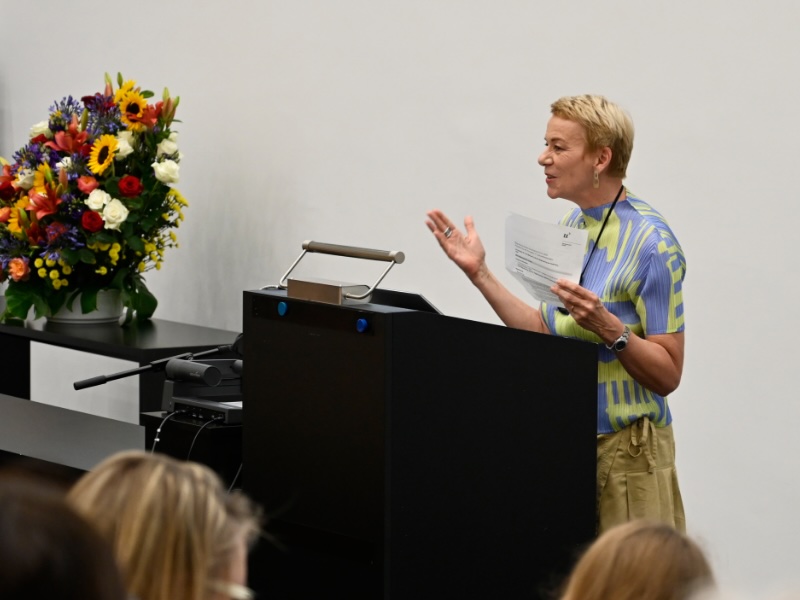
Memories of the pandemic remain fresh in many people’s minds. The battle against the coronavirus is a good example of how healthcare systems in Switzerland and worldwide can cope relatively well with a new problem, however. Vaccines against the pathogen were developed in record time and prevention measures were assessed and implemented. And digitalization experienced a strong boost at the same time.
Regulation as an important basis
It goes without saying that many things proved to be controversial during the pandemic – and almost every measure provoked resistance. Thinking in an interdisciplinary way helped us to cope with the crisis, though. And thinking outside our own academic field in this way must guide us if we want to solve further problems in the healthcare system, explained Virginia Richter, Rector of the University of Bern, on opening the Swiss Governance Forum 2025 at the end of June.
This event has been discussing complex social challenges every two years since 2017. According to Richter, there is no black or white and no right or wrong when it comes to healthcare policy: “As a comprehensive university, Bern in particular is predestined to analyze a question from a variety of perspectives and thus find answers that are valid for the long term.”
“Research alone is of little use: whether and how quickly patients benefit from innovations in everyday life is of crucial importance.”
Rudolf Blankart
In the shape of the KPM Center for Public Management, which hosted the event alongside the Swiss Institute for Translational and Entrepreneurial Medicine (sitem-insel AG), a competent institution has been addressing this topic at the University of Bern for more than 20 years. sitem-insel, by contrast, primarily focuses on the question of how new research findings from the world of medicine can be transferred into clinical practice.
Platforms for superior solutions
Rudolf Blankart, professor at KPM and member of the management board of sitem-insel AG, took the view that there are too many weaknesses and conflicting goals in our healthcare system for all the problems to be eliminated in one go. Digitalization, for instance, has progressed much too slowly – “and in a country which claims to have invented the internet”. Regulation is always a balancing act: it can create disincentives that cement outdated treatments in place and stifle innovation, but it can also provide the necessary guidelines.
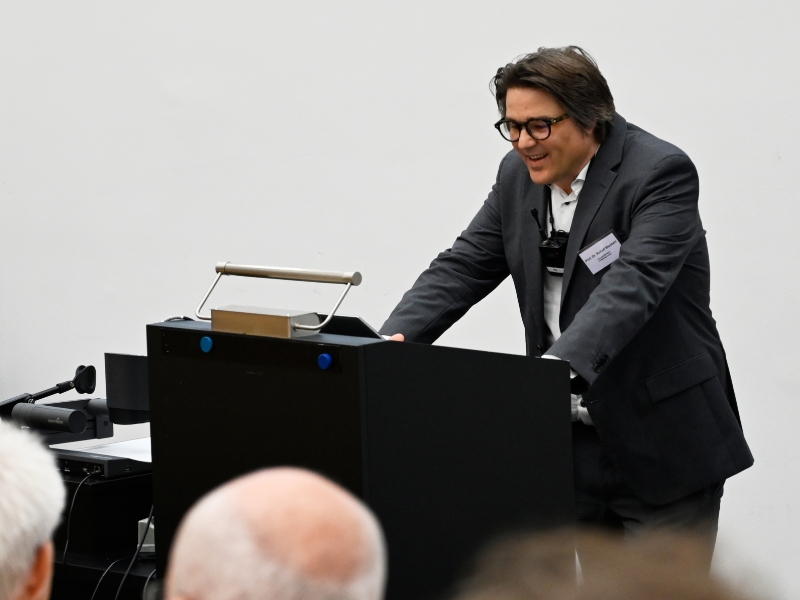
The task of science is ultimately to provide evidence – “even if the world of politics takes repeated decisions which ignore or are even contrary to science-based principles,” said Blankart, expressing criticism. On its own, research achieves little. The key factor is whether and how rapidly innovations can be introduced to the benefit of patients’ everyday lives.
Subscribe to the uniAKTUELL newsletter

Discover stories about the research at the University of Bern and the people behind it.
As a positive example, he cited a round table which is dedicated to the development of new antibiotics on the basis of continuous discussions with the worlds of politics, public administration, industry and research. It is important to change the ways people think when dealing with problems: “In the healthcare system, improving the interactions between stakeholders should be more important than asserting one’s own position.”
A population with a clear opinion
In fact, not all political initiatives are always science-based, complained FOPH Director Anne Lévy. Lévy was optimistic about the recent voting patterns of the Swiss general public, though: The adoption of the Nursing Initiative and the “Yes to the protection of children and adolescents from tobacco advertising” initiative shows that a majority of the voting population has recognized the importance of adequate staff resources and prevention.
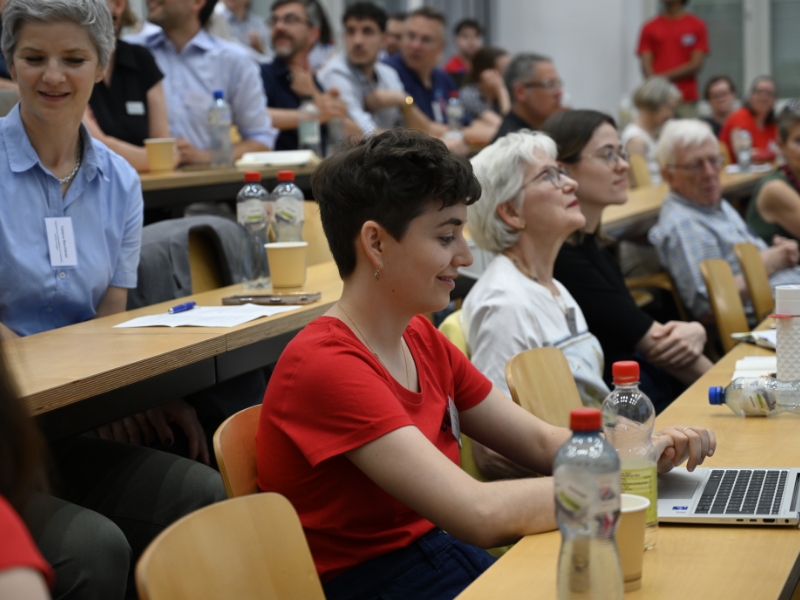
Lévy’s predecessor, Thomas Zeltner, looked back almost wistfully on the time when he was responsible for managing the emerging phenomenon of HIV. At that time, the primacy of science was pretty much unchallenged. These days, by contrast, the politicization of healthcare issues is widespread rather than the use of evidence-based knowledge, explained Zeltner.
Innovations through supplementary insurance?
Despite strict regulations, the healthcare industry is a business. The Hirslanden Group, for example, specializes in supplementary insurance, yet its profit margins are under pressure as insurance prices fall, lamented Niowi Näf, a member of the executive board of the Hirslanden Group. One problem for private hospitals is that four-fifths of supplementary insurance policies currently focus on offerings in the areas of comfort, access and freedom of choice, while only 20 percent of supplementary payments are allocated to clinical and preventive innovations.
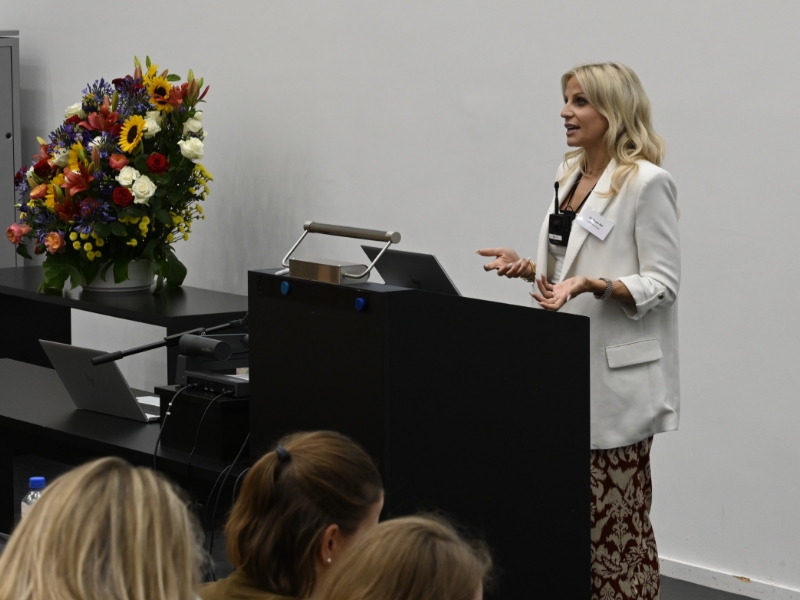
If the premiums for basic insurance are already too expensive for many insured persons and increasing numbers of hospitals are deciding to offer private rooms to patients with basic insurance coverage, the attractiveness of supplementary insurance falls further. Hirslanden therefore wants to focus more on medical excellence, explained Näf. Näf is convinced that in the medium term, if the innovations are evidence-based, they should also be included in basic insurance coverage and therefore be accessible to all insured persons.
What about the electronic patient file?
Digitalization proved to be a major topic of discussion at the Swiss Governance Forum. In itself, digitalization is a viable instrument for relieving the workloads of medical and nursing staff while saving costs at the same time. Yet projects in this area seem slow to get off the ground. The electronic patient dossier (EPD) from the Swiss Post subsidiary Sana Health AG, for example, only succeeded in attracting 60,000 insured persons – less than one percent of the population of Switzerland.
CEO Matthias Glück also criticized the countless interfaces to be overcome and the “double voluntary consent” from both healthcare institutions and insured persons to the use of a digital tool.
“The federal government really needs to make an electronic patient dossier available.”
Annamaria Müller, Chair of the Administrative Board at freiburger spital
Annamaria Müller, member of the administrative board at various hospitals, scoffed at the “tinkering” with the electronic patient dossier so far. “Rather than insured persons having to manage this themselves, it would be better if the federal government could itself make a dossier available. Individuals could then decide whether they want to register for it or not.” However, Müller also raised the question of why the cantons could not agree to a common system among themselves or at least to uniform interfaces in the interests of advancing digitalization.
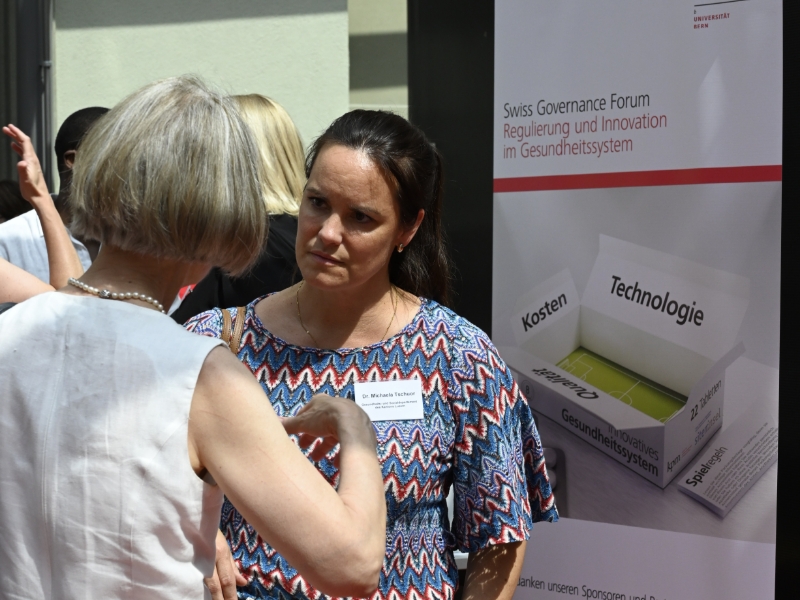
Lucerne’s health director Michaela Tschuor added that the cantons would certainly favor greater uniformity. She appealed to the Federal Council to take action in this area in order to achieve a comprehensive solution or at least clear certification requirements. According to Tschuor, the experiences with digital solutions in the field of healthcare have been positive in central Switzerland.
Universities as drivers of innovation
Four hours are not enough to fully come to grips with a structure as complex as the Swiss healthcare system, which has come into being over many decades. Yet the conference helped unravel the complexity, brought together key players and presented ideas for advancing innovation and digitalization in this extremely complex environment.
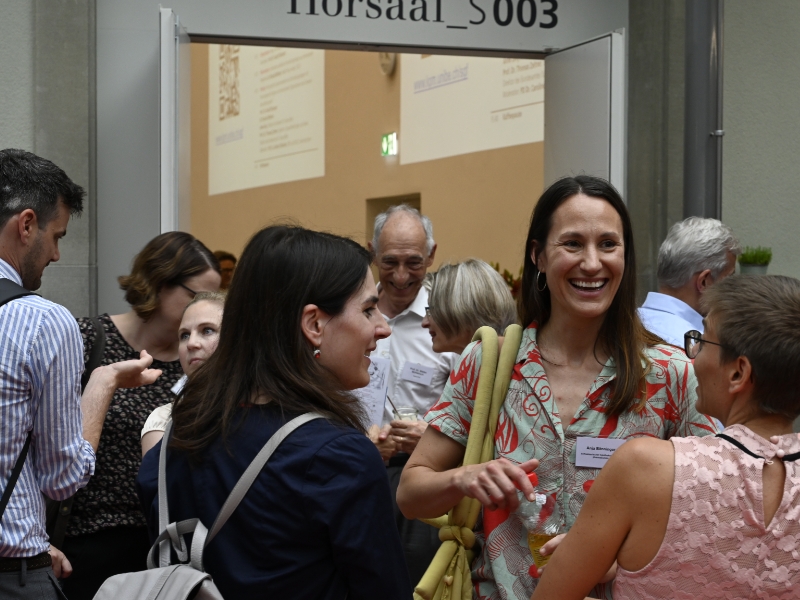
The University of Bern was not just the host. The university and the world of research in general are also partners which examine medical ideas for their integrity, develop the necessary databases and help transfer innovations from the laboratory to the operating room.
About the Center for Public Management
The KPM Center for Public Management at the University of Bern was founded in 2002. It is a center for research in the field of administrative science which is highly regarded both in Switzerland and abroad. As an interfaculty unit of the Faculty of Business, Economics, Social Sciences and Law, it is dedicated to interdisciplinary and multidisciplinary research which spans the disciplines of economics, political science and law. The key products of the center are basic research in the area of the management of public institutions and tasks, the master’s degree program in Public Management & Policy (PMP) as well as the postgraduate Executive Master of Public Administration (Executive MPA) program and the CAS course “Management and Politics of Public Institutions” (CeMaP). It also provides services to the public sector in the form of analyses, expert reports and evaluations.